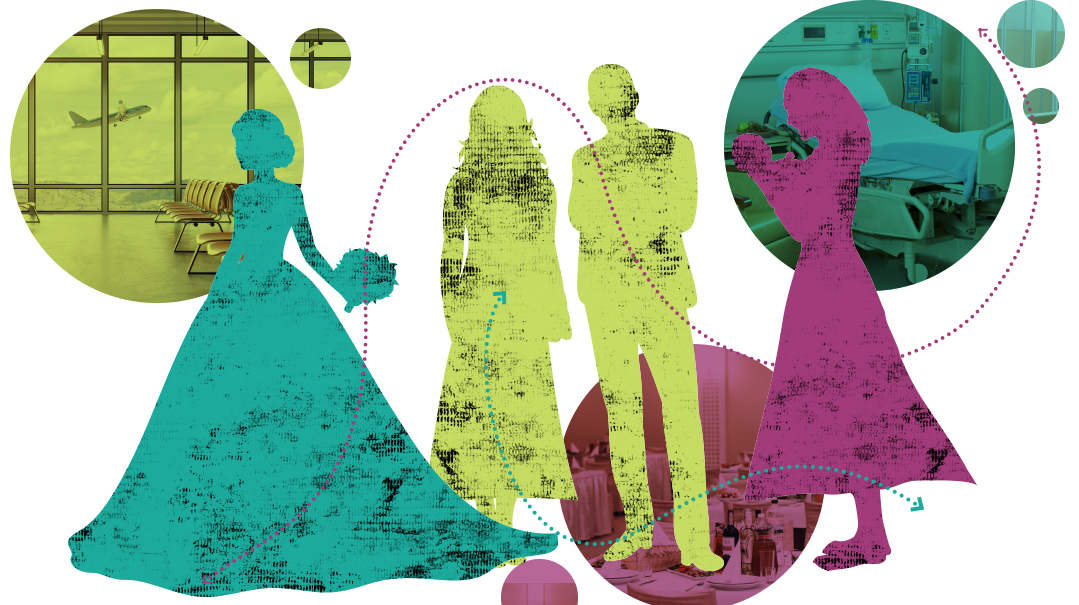Celebrating from Afar
| August 10, 2021In a Chinese airport, in a post-op ward, in a delivery room; 3 stories of simchahs shared from afar

How Do You Say Bris in Chinese?
Shira Assoulin’s story
We were a young Israeli couple on shlichus in China. It was clear to us from the outset that we’d be there no longer than a year. What we didn’t know was that at the end of that year, we’d be awaiting the birth of our first child.
On a clear, hot morning, I went to a Chinese hospital to give birth to my eldest child. I wasn’t accompanied by my mother or a doula, but a Jewish mother’s tefillos have impact no matter where she is in the world. I was surrounded by local midwives and hospital staff, and I didn’t really understand the language, but we managed to somehow communicate in English.
About twenty-four hours after I was admitted, I cradled my son in my arms. There were excited phone calls to the entire family and jokes about the little Chinese Jew who was just born. I was euphoric, but my husband looked pensive.
“Yaakov! What about the bris?!” I suddenly cried. “How did we not think about the bris? What will we do? Is there even a mohel in China? How do we know if he’s good? And there’s no way that my parents or yours can come….”
I started to cry.
After several intense hours and countless phone calls, my husband informed me, “We’re flying to Europe! We’ll do the bris there, and our parents will come from Israel and meet us there.”
Despite my exhaustion and weakness, I happily agreed to the arrangement.
Yaakov hurried to organize a passport for the baby. Six days after our baby’s birth, we packed a small suitcase and wrapped up our sweet bundle for his first trip out into the world.
When we entered the terminal, we were greeted by mayhem. “Strange,” my husband said to me. “It’s usually very calm and quiet here. I wonder what happened.” He left me with the baby and baggage and went to find out what was going on. When he returned, his face was grim.
“There’s a strike!” he informed me. “Let’s daven that it will be over soon. I have no idea how strikes work in China,” he added with a smile.
If he only knew what our next few days would look like, he might not have been so quick to smile.
The hours passed. Conditions weren’t great for any traveler, much less so for an exhausted new mother and a tiny, screaming baby who didn’t like having his diaper changed between two chairs in the waiting area.
An entire day passed. My husband left the terminal to buy food and drinks, hand soap, and diapers. I washed the baby in the sink in the terminal. I wanted to go back home, but the strike could end at any moment, and we couldn’t risk missing our flight.
In the middle of the seventh day after his birth, we received a call from our parents, who’d already landed in Europe. “You have no idea what will happen, so maybe you should check into the possibility of doing the bris in China?” they suggested.
“What do you mean?” I protested. “The strike will end, and everything will be fine.”
Or maybe not.
Oops! We could not locate your form.






